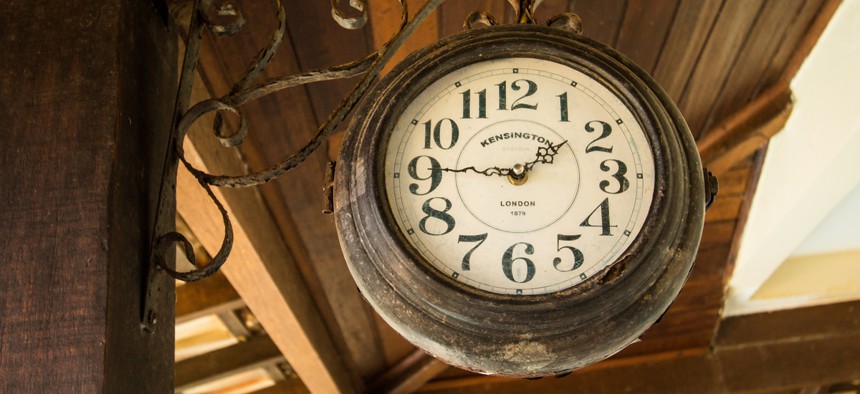California Tries to Ditch the Daylight Saving Time Clock-Switch

California is one of a handful of states to attempt to do away with the time flip-flop. Shutterstock

Connecting state and local government leaders
A bill that would keep the state on Daylight Saving Time year-round awaits Gov. Jerry Brown's signature.
A bill that would allow California voters to make Daylight Saving Time permanent passed the state legislature last week and is awaiting Gov. Jerry Brown’s signature.
As approved by lawmakers, the bill would place a measure on a future statewide ballot to repeal California’s 1949 Daylight Saving Time Act. But even if voters approve the measure, Congress would have to act to make the change, the Mercury News reports.
It’s unclear what Brown, who has 12 days to act on the legislation, will do. If he doesn’t sign the bill or veto it within that time period, it becomes law automatically.
Daylight Saving Time is governed by the federal Uniform Time Act, passed in 1966 to “promote the adoption and observance of uniform time within the standard time zones.” Prior to its passage, individual states worked out their own plans for implementing Daylight Saving Time, including the beginning and ending dates and, in some cases, which sections of the state should use it.
The law specifies that clocks must “spring forward” one hour on the second Sunday in March to start Daylight Saving Time, and “fall back” an hour on the first Sunday in November to revert back to standard time. It also allows states to pass laws to exempt themselves, which does not require congressional approval unlike a full-time adoption of Daylight Saving Time. Hawaii, American Samoa, Guam, Puerto Rico, the Virgin Islands and most of Arizona have opted out.
The ordeal began as an energy-saving measure during wartime, and the U.S. Department of Transportation says it also saves lives, prevents traffic injuries and reduces crime. But plenty of people hate the shift, and researchers have found that the clock-switching can have negative health effects, noting spikes of strokes and heart attacks in the days following the shift.
California is one of a handful of states that in recent years has looked at doing away with the time flip-flop. Florida attempted a similar permanent switch to Daylight Saving Time, noting in the legislation that implementation was contingent on Congress agreeing to the change. Massachusetts and Maine began considering measures to ditch the switch in 2016 by converting permanently to Atlantic Standard Time, which no state currently observes. Lawmakers in Virginia, Nebraska, Wyoming, Michigan, Kansas, Washington, Alabama and Vermont also have debated doing away with the time change, either by keeping Daylight Saving Time permanent or exempting the states from the switch altogether.
Kate Elizabeth Queram is a Staff Correspondent for Government Executive’s Route Fifty and is based in Washington, D.C.

NEXT STORY: West Virginia Governor Faces Scrutiny Over His Telecommuting




